Famous Footprints
Many varied and important historical figures have a connection to Derbyshire – some were born and lived here, others conducted their business here, some were passing through on their way to fame, and on some occasions, infamy. Derby Uncovered is pleased to bring you some of those famous footprints in our history and heritage. We will be adding more, so if you have any thoughts or comments, please feel free to get in touch and if you want to be kept updated then please sign up.
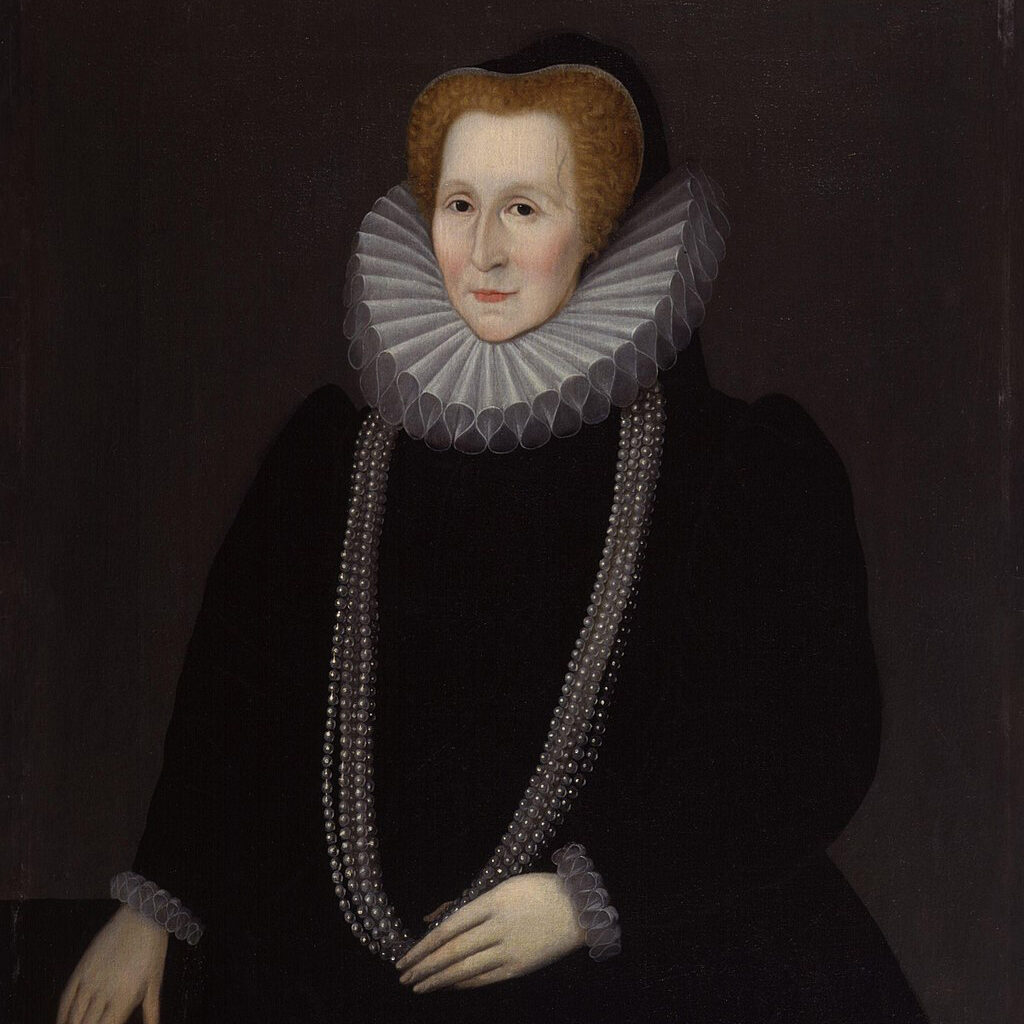
Bess of Hardwick
Born: 27 July 1527
Died: 13 February 1608
After Queen Elizabeth, Bess was possibly the richest and most powerful woman in the world at that time. She had married four times, growing richer and more powerful after the funeral of each of her husbands.
She was known for her building projects and the most famous of them all, Chatsworth House, can still be visited in Derbyshire today.
Chatsworth House is the seat of the Dukes of Devonshire who take their family name, Cavendish, from her second marriage. Another Derbyshire building, Hardwick Hall, was built for her between 1590 and 1597.
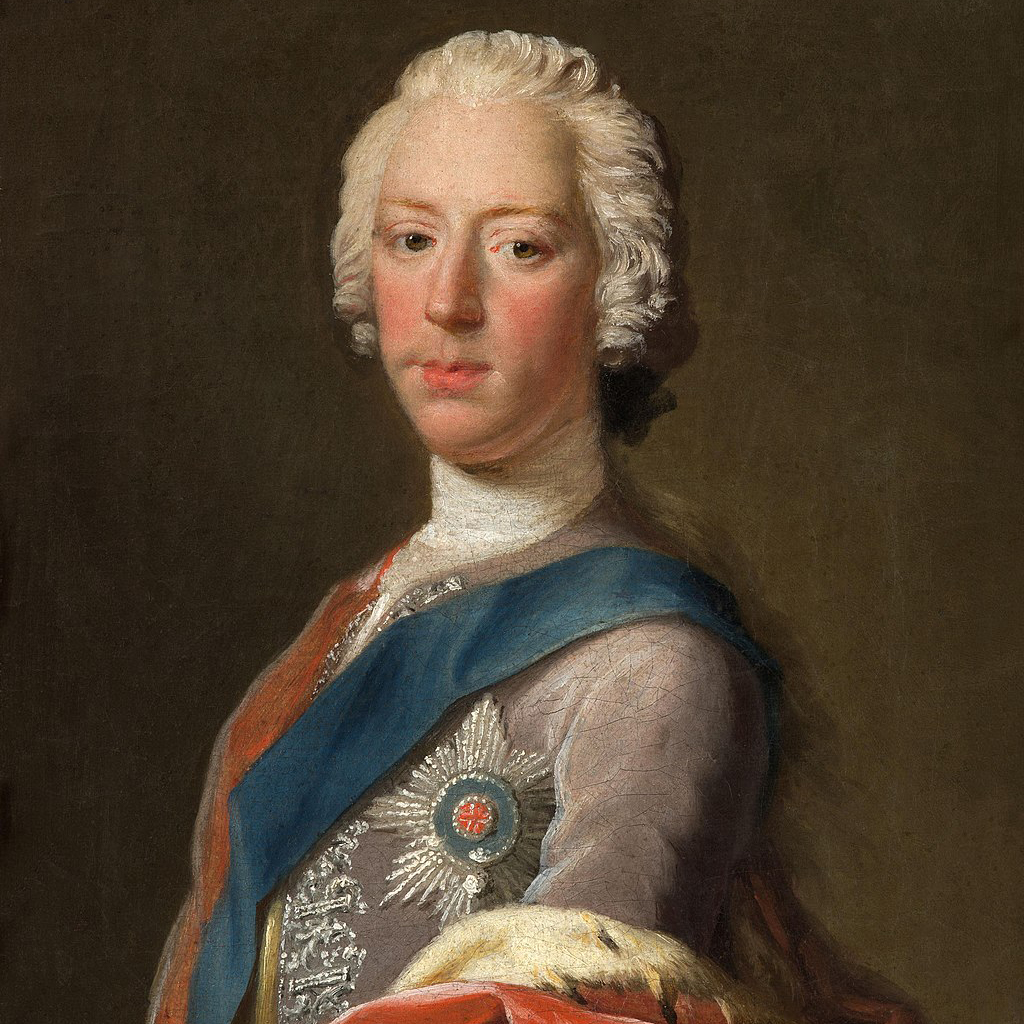
Bonnie Prince Charlie
Born: 20 December 1720
Died: 31 January 1788
Prince Charles Edward Stuart, otherwise known as Bonnie Prince Charlie, arrived in Scotland from Rome in 1745, where he had been living in exile. He had raised an army and his intent was to march to London with the avowed aim of seizing the throne from King George II.
On December 4, 1745 he reached Derby with his armies where he remained for two days. It was in Derby that the decision was taken to retreat to Scotland, a move that ultimately ended with his defeat at the Battle of Culloden in April 1746.
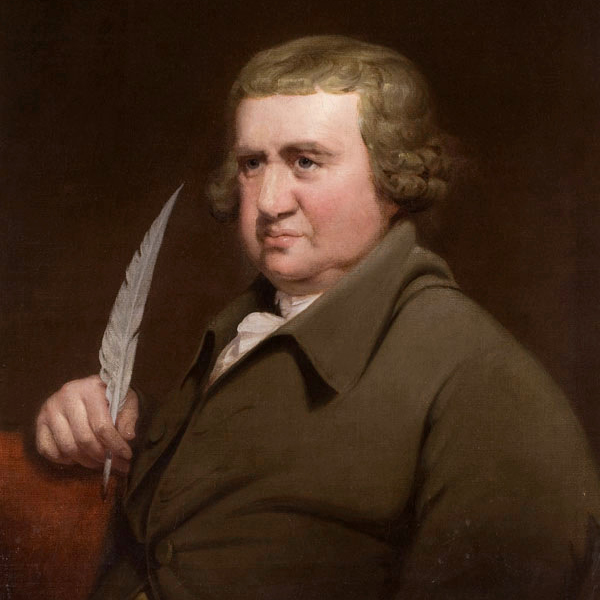
Erasmus Robert Darwin FRS
Born: 12 December 1731
Died: 18 April 1802
Darwin was a botanist, scientist, philosopher, poet, medical practitioner, slave-trade abolitionist, co-founder of the Lunar Society and founder of the Derby Philosophical Society. Born near Newark in 1731 he lived at Lichfield and Radbourne before moving to Derby due to its ‘central location’.
He was an inventor in his own right and was one of the greatest minds of his time, turning down the job of personal physician to King George III. He left behind a spark that would be rekindled in his grandson Charles Darwin, famed for his Origin of the Species.
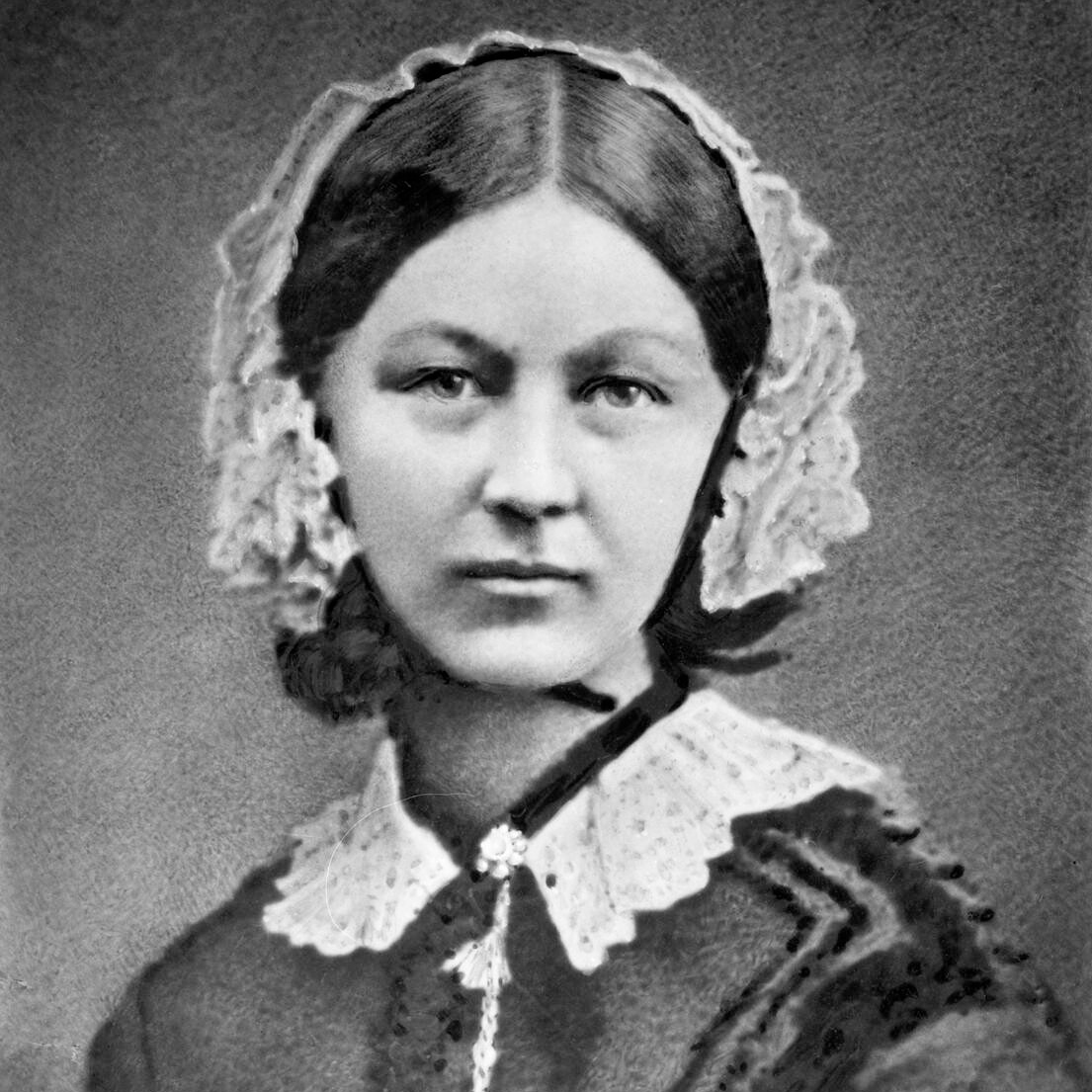
Florence Nightingale OM RRC DStJ
Born: 12 May 1820
Died: 13 August 1910
Although not born in Derbyshire, Florence, a social reformer, statistician and the founder of modern nursing, had very strong links with the county with one of her family’s homes in Lea Hurst, Matlock. Florence’s reputation rose prominently during the Crimean War where she served as a manager and trainer of nurses and acquired the persona of ‘the lady of the lamp’ while she tended to wounded soldiers at night.
In July 2021, the London Road Community Hospital in Derby was renamed Florence Nightingale Community Hospital in her honour and she is commemorated elsewhere in the city with three statues including a Grade II-listed statue on London Road.
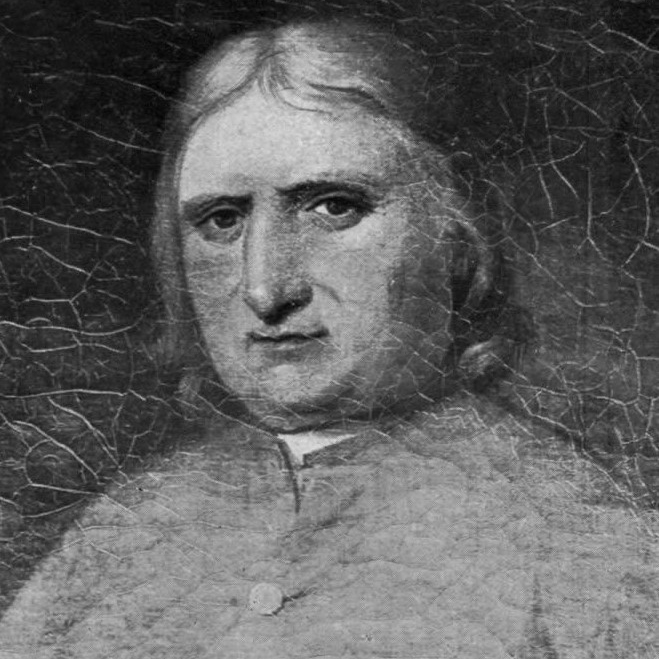
George Fox
Born: July 1624
Died: 13 January 1691
George Fox was a founder of the Religious Society of Friends, commonly known as the Quakers or Friends. Rebelling against religious and political authorities, he spoke at an assembly in Derby in 1650 and was imprisoned for six months in Derby on a charge of blasphemy. After refusing to fight in an army against the return of the monarchy (or to take up arms for any cause), his sentenced was doubled.
The Religious Society of Friends gained the name Quakers after Justice Bennet of Derby first calling them that because George Fox had told them to ‘tremble at the word of God’.
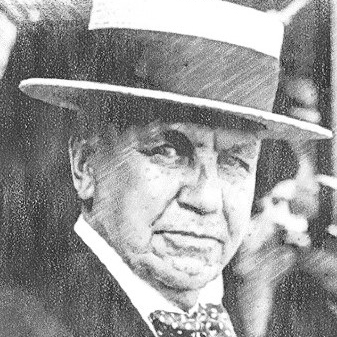
Harry Stevens (AKA Hotdog Man)
Born: 3 May 1934
Died: 18 April 1802
Harry M. Stevens was born in 1855 at Litchurch, Derby. By the age of 21 he had married Mary Wragg and his first marital home was at 21 Russell Street in Derby. Having previously worked as a puddler – someone who was responsible for the stirring of molten pig iron to convert it to wrought iron, he soon moved into catering when he became a greengrocer. Stevens supplied, amongst others, the 95th Derbyshire and 54th West Norfolk Regiments at Normanton Barracks.
In 1882, Harry and his family emigrated to the US and settled in Niles, Ohio. Whilst in the US, Harry began to acquire the rights to sell scorecards at baseball games and alongside the scorecards, he then acquired the right to sell food at the New York Giants’ baseball games.
It is claimed that, on a particularly cold day, he came up with the idea of a placing a hot frankfurter sausage inside a bread roll. Sports cartoonist Thomas Dorgan, who had been inspired to draw a cartoon of a dachshund inside a bread roll, called it a “hot dog” in his cartoon and the name stuck.

Jedediah Strutt
Born: 26 July 1726
Died: 7 May 1797
Jedediah Strutt was born in 1726 in South Normanton, near Alfreton. The son of a prosperous farmer and maltster, he became an apprentice wheelwright in 1740 at Findern, near Derby. In 1759, Strutt took out a patent for the ‘Derby Rib’ machine – an attachment to a stocking frame that enabled it to knit ribbed stockings.
After his patent survived a challenge in the courts in 1766, his business grew substantially and Strutt bought land in 1777 for his first mill in Belper. In 1781, Strutt purchased the old forge at Makeney by Milford Bridge with Belper opening in 1778 and Milford in 1782. Alongside the mills, Strutt purchased a large amount of workers’ houses and these can now be seen as part of the Derwent Valley Mills World Heritage Site.
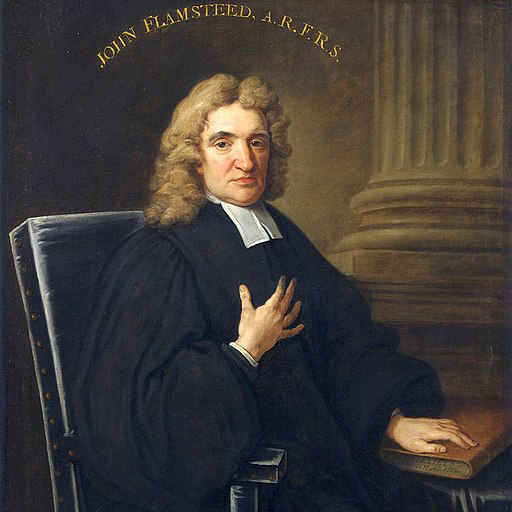
John Flamsteed FRS
Born: 19 August 1646
Died: 31 December 1719
Flamsteed was born in Denby and educated at the Derby Free Grammar School. Gifted at both Latin and mathematics, Flamsteed was an astronomer and the first ever Astronomer Royal. Although he mistakenly categorised it as a star, he made the first ever recorded observation of Uranus and laid the foundation stone for the Royal Observatory at Greenwich.
Flamsteed died in 1719 and he is commemorated on a blue plaque he shares with Joseph Wright at 28 Queen Street, Derby, a property he owned and where Joseph Wright also lived in many years later.
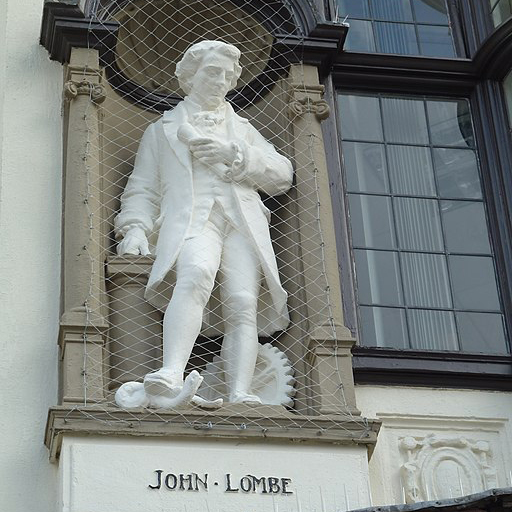
John Lombe
Born: 1693
Died: 20 November 1722
Born in Norwich, John Lombe was a forefather of the Industrial Revolution and quite possibly Britain’s first industrial spy. In 1721, the world’s first factory was built for the Lombe brothers by George Sorocold on the site of the current Derby Museum of Making. The workings of the factory were based around secrets stolen from silk manufacturing machinery in the mills in Piedmont, Italy, which John himself had visited.
Lombe died suddenly in 1722 and, according to legend, was killed by a female assassin sent by the King of Sardinia who sought revenge on the Lombe brothers for the theft of the secrets.
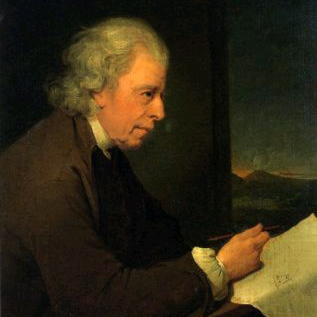
John Whitehurst FRS
Born: 10 April 1713
Died: 18 February 1788
An influential member of the Lunar Society, John Whitehurst FRS was a clockmaker and scientist who was also a founder of modern-day geology. Although born and raised in Congleton, Cheshire, Whitehurst moved to Derby aged 23 to start his first business and spent 44 years in the city. From 1736 to 1764 he lived at 24 Iron Gate.
As a clockmaker Whitehurst created several notable inventions which influenced contemporary practices such as the creation of the round dial, the long case clock, a standardisation of parts and the manufacture of components to very high tolerances. In 1778, Whitehurst published his theory on geological strata in ‘An Inquiry into the Original State and Formation of the Earth’ which he had begun while living in Derby.

Joseph Pickford
Born: 1734
Died: 13 July 1782
Born in Warwickshire in 1734, Joseph Pickford became one of the most highly regarded architects during the reign of King George III. Pickford moved to Derby in around 1760 and worked extensively throughout the Midlands. His clients included the artist Joseph Wright of Derby, the potter Josiah Wedgwood and the clockmaker and scientist John Whitehurst.
The house that Pickford designed for himself is now a Grade I listed building and houses Pickford’s House Museum. The museum was opened in 1988 and showcases the accommodation of a late Georgian professional person. Other notable works of Pickford include Etruria Hall in Staffordshire and St Helen’s House, a Grade I listed building in King Street, Derby.
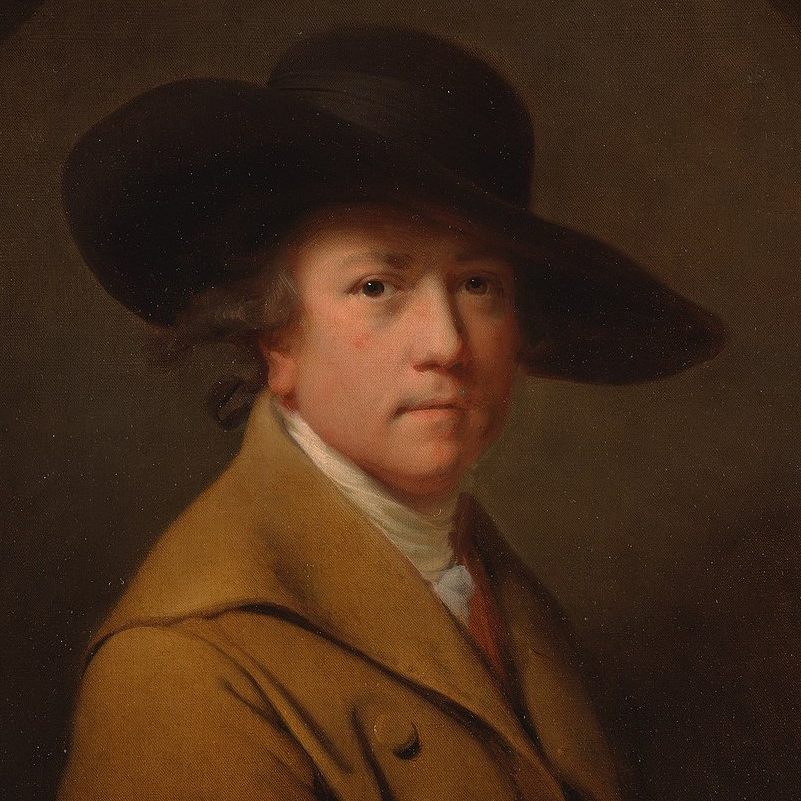
Joseph Wright of Derby
Born: 3 September 1734
Died: 29 August 1797
The world-renowned Joseph Wright was born in Iron Gate, Derby on September 3, 1734. Described by the art historian F.D Klingender as ‘the first professional painter to express the spirit of the Industrial Revolution’, the works of Joseph Wright have been noted for his use of tenebrism effect, which emphasises the contrasts of light and dark in figurative compositions to increase their dramatic effect and for his paintings of candlelit subjects.
Wright spent many years in his hometown and many of his paintings are on display at the Derby Museum and Art Gallery and include famous works such as ‘An Experiment on a Bird in the Air Pump’, ‘The Alchemist Discovering Phosphorus’ and ‘A Philosopher Lecturing on the Orrery’.
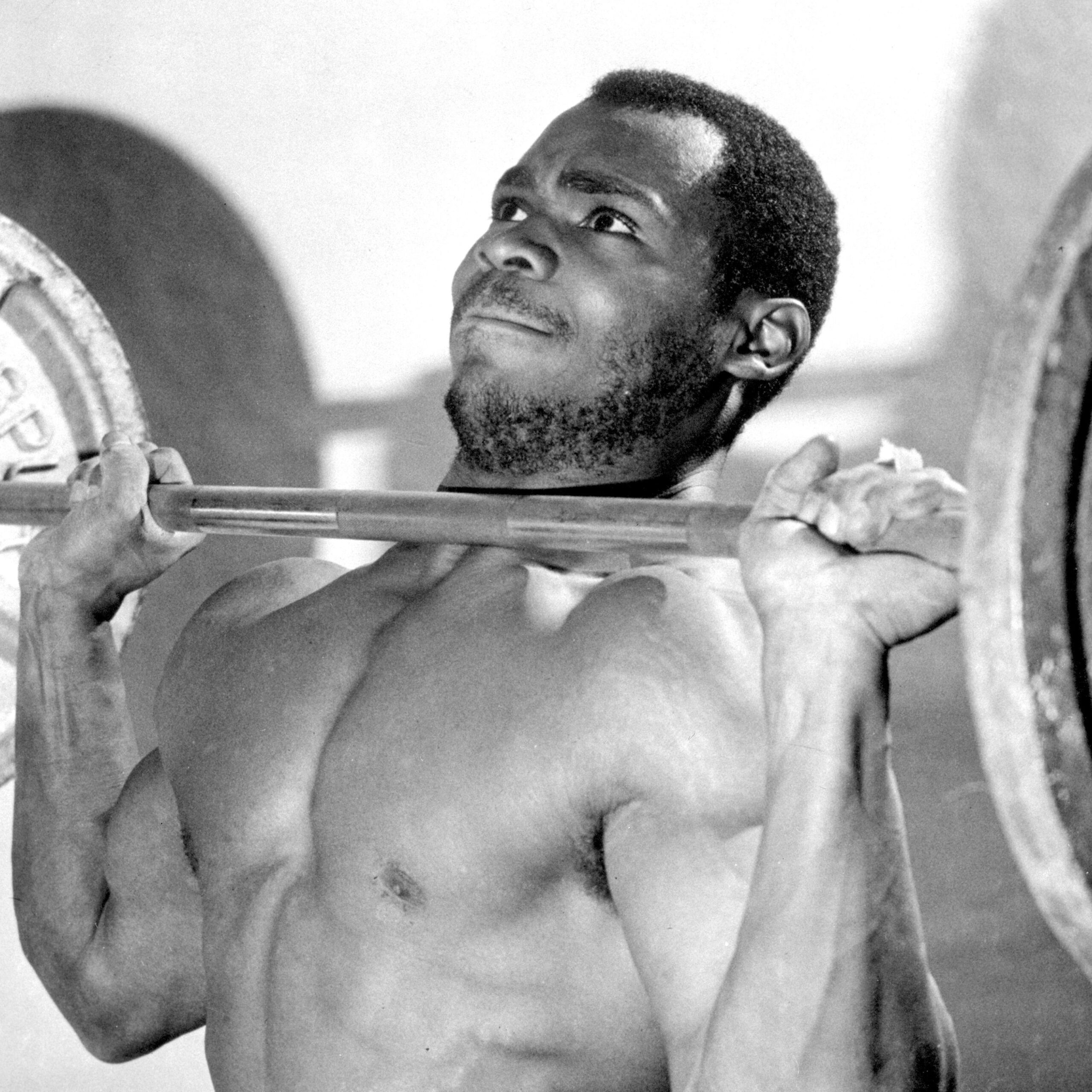
Louis Martin
Born: 11 November 1936
Died: 16 January 2015
Born in Kingston, Jamaica, Britain’s greatest ever weightlifter arrived in Derby in the 1950s and made the city his home. Within four days of arriving in Derby, Louis had found a job, lodgings and discovered a gym.
Louis’s weightlifting career was kicked off when he defeated the 1956 Olympic gold medallist Arkady Vorobyov of the Soviet Union at the World Championships of 1959 in Warsaw. All in all, Louis held World Championship titles in 1959, 1962, 1963 and 1965; World Championship silver medals in 1961 and 1964; and European Championship titles in 1959, 1962, 1963 and 1965. He won a European silver medal in 1961 and Commonwealth gold medals in 1962, 1964 and 1970. In 1960, he won bronze at the Rome Olympics and silver at the Tokyo Olympics in 1964. In 1965 Louis was awarded an MBE for his services to weightlifting.
A larger-than-life character, Louis was incredibly well-loved by the Derby people.
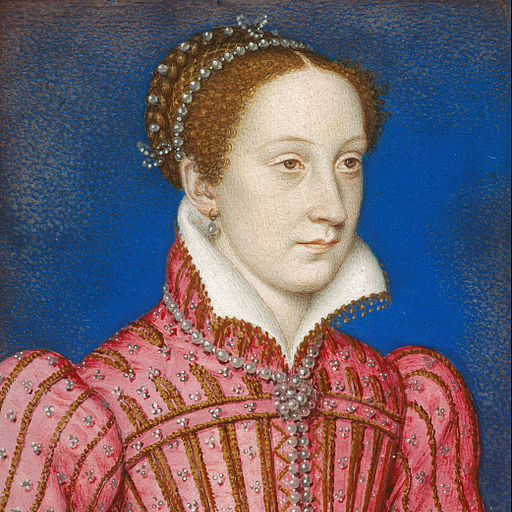
Mary, Queen of Scots
Born: 8 December 1542
Died: 8 February 1587
Known also As Mary Stuart, Mary was the only surviving legitimate child of James V of Scotland and was considered by many of England’s Catholics as the legitimate sovereign of England. Perceived as a threat, Queen Elizabeth I imprisoned Mary for many years in various castles and manor houses in England.
Mary spent time at Tutbury Castle and Wingfield Manor in Derbyshire as well as being permitted by Elizabeth to spend time at The Old Hall Hotel, Buxton. She also spent the night in Derby in 1585 at Babington Hall, the home of Anthony Babington. It was ultimately a plot to seize the throne on behalf of Mary that led to both her and Anthony Babington’s executions.
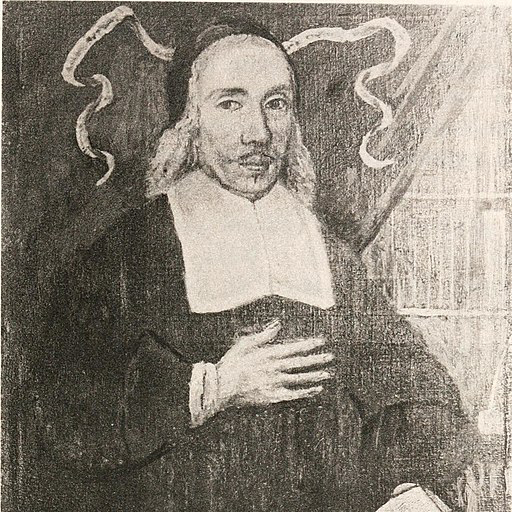
Rev. John Cotton
Born: 4 December 1585
Died: 23 December 1652
The Reverend John Cotton, Pilgrim Father and Founder of Boston, Massachusetts, was born in Derby and educated at the Derby Free Grammar School. Holding strong puritan and non-conformist beliefs, he fled his church of St. Botolph’s Church in Boston, Lincolnshire, for his own safety, and sailed for the New World.
He settled in Trimountaine, Massachusetts, which was later renamed Boston after Boston in Lincolnshire, where many of the early settlers, including the Reverend John Cotton himself, shared a connection.
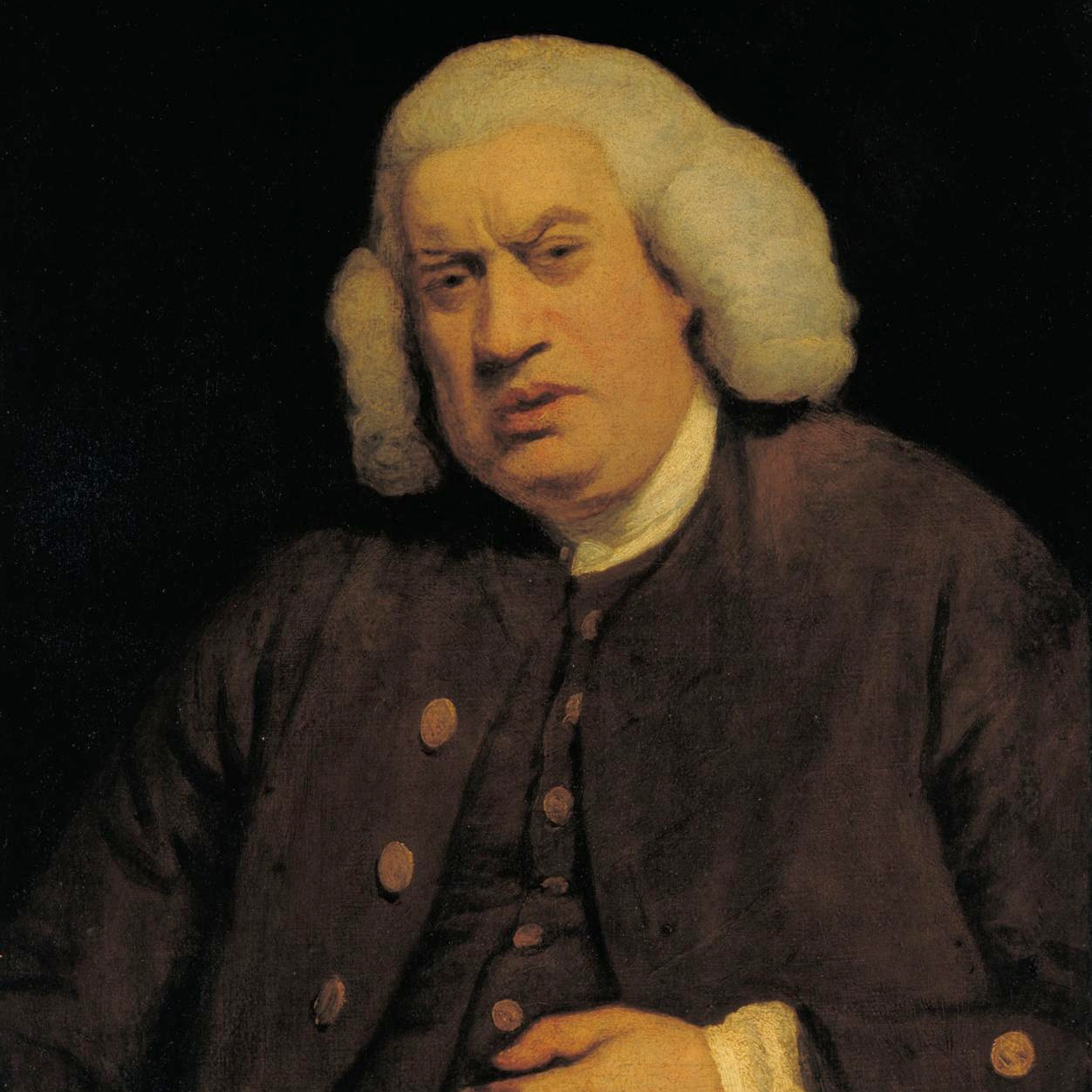
Samuel Johnson
Born: 18 September 1709
Died: 13 December 1784
Samuel Johnson, often referred to as Dr. Johnson, was an English writer who, amongst various acclaimed works, released ‘A Dictionary of the English Language’ in 1755, a publication which had far-reaching effects on modern English and was described by Walter Jackson Bate as ‘one of the greatest single achievements of scholarship’.
Born in Staffordshire, Johnson regularly visited Ashbourne and drank in The Green Man when he did. Johnson married Elizabeth ‘Tettie’ Porter at St. Werburgh’s Church in Derby on July 9, 1735.

Samuel Plimsoll
Born: 10 February 1824
Died: 3 June 1898
Samuel Plimsoll was born in Bristol and spent part of his childhood in Penrith, Cumberland. In 1868, Plimsoll was elected as the Liberal Member of Parliament for Derby. Upon his election he immediately began to campaign for legislation that would protect seamen, particularly heavily insured, but overloaded and unsafe vessels – known as coffin ships – which would be worth more to the owner sunk than afloat.
To these ends he devised the Plimsoll Line – a line on a ship’s hull indicating the maximum safe draught, and therefore the minimum freeboard for the vessel in various operating conditions. Despite being re-elected for Derby in 1880, he gave up his seat to William Vernon Harcourt, who he believed, as the Home Secretary, would be able to protect sailors interests more effectively.

Sir Richard Arkwright
Born: 23 December 1732
Died: 3 August 1792
Famous for his contribution to the Industrial Revolution, Arkwright has been credited as one of the forefathers of the creation of mass-produced yarn, being the first to develop factories housing both mechanised carding and spinning operations.
With many of Arkwright’s premises being based in places such as Cromford, Bakewell and Wirksworth, he left an indelible footprint on the county of Derbyshire – much of which is still visible today.

Thomas Denman, 1st Baron Denman
Born: 23 July 1779
Died: 26 September 1854
Denman arrived in Derby in 1817 to defend the Pentrich Martyrs who were accused of treason. Although unsuccessful in their defence, he gained fame from their trial and went on to become a Lord Chief Justice of England, always favouring the underdog.
He was also an avid campaigner for the abolition of slavery and became 1st Baron Denman, of Dovedale, in the County of Derby in 1834.
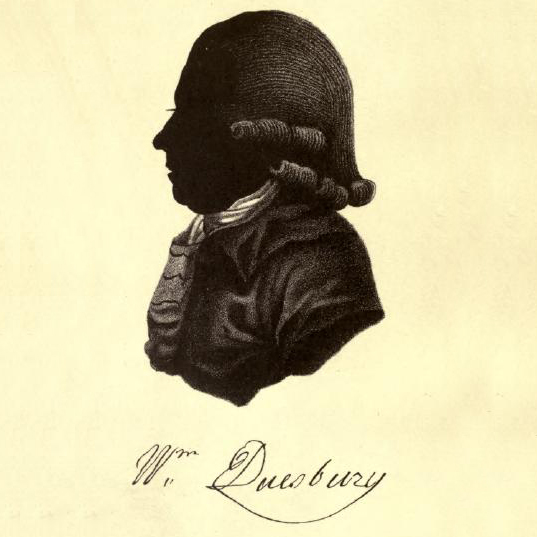
William Duesbury
Born: 7 September 1725
Died: 30 October 1786
Born in Staffordshire, William Duesbury moved to Derby on January 1, 1756. As a founder of Royal Crown Derby, he left an indelible mark on the history of porcelain that can still be seen today.
A museum and factory on Osmaston Road in Derby stands testament to the world-renowned brand of bone china. Duesbury died of a heart attack on October 30, 1786 and was buried at St. Alkmund’s Church in Derby.


